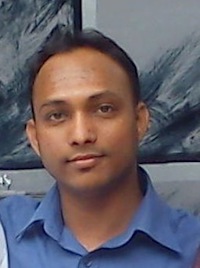 The Linux Foundation regularly awards scholarships as part of its Linux Training Scholarship Program. In the five years that the Linux Foundation has hosted this program, it has awarded a total of 34 scholarships totalling more than $100,000 in free training to students and professionals who may not otherwise have access to these opportunities.
The Linux Foundation regularly awards scholarships as part of its Linux Training Scholarship Program. In the five years that the Linux Foundation has hosted this program, it has awarded a total of 34 scholarships totalling more than $100,000 in free training to students and professionals who may not otherwise have access to these opportunities.
In conjunction with this scholarship program, we are featuring several recent scholarship recipients in the hope that their stories will inspire others. In this latest installment of the series, we talk with Kiran Padwal (age 27), a recipient in the Kernel Guru category.
Kiran, who lives in India, has submitted basic patches to stabilize the kernel, for example, to correct errors for memory-managed resource APIs. He has also tested patches submitted by the community and was part of the DA9055 codec device driver development. He says that the kernel is still overwhelming for him but that, with the help of training, he hopes to understand the kernel modules more deeply and be more useful in development.
How did you become interested in Linux and open source?
 I did my bachelor’s in Electronics Engineering, and embedded systems interested me a lot. Linux runs on millions of embedded devices and is a huge collaborative project — thanks to Linus Torvalds and the Linux community. I started following Linux in my college days.
I did my bachelor’s in Electronics Engineering, and embedded systems interested me a lot. Linux runs on millions of embedded devices and is a huge collaborative project — thanks to Linus Torvalds and the Linux community. I started following Linux in my college days.
When I actually started working on the Linux kernel, I saw some memory leaks in kernel code and observed that every contributor has a voice in the open source community. Therefore, I started sending small patches on LKML. I got great support from maintainers and, because of that, my interest was boosted.
What Linux Foundation course will you take with your scholarship?
I have already taken benefit of this scholarship, and I have done the Developing Linux Device Drivers (LFD331) online course. This course was taught by Jerry Cooperstein, and it was a great learning experience for me. I learned lots of new technical concepts, and it also had many hands-on assignments, which helped me understand things clearly. All of this put together will help me to shape my career.
How do you expect to use the knowledge you gain from the course?
With this knowledge, I will be able to explore more modules of the Linux kernel and continue participating in the LKML, along with kernel development. I will learn by doing more and will expand my kernel knowledge to ultimately give back to the community. I would also like to contribute to make Linux better and to make the world a better and smarter place.
What are your career goals? How do you see a Linux Foundation course helping you achieve those goals?
I aspire to be a maintainer of one of the kernel modules. This course has helped me increase my knowledge base and has also given me deeper insight into kernel programming concepts. This will always be a strong factor for my career advancement.
What other hobbies or projects are you involved in? Do you participate in any other open source projects?
I like to play around with embedded boards. I have experimented with my Raspberry Pi board as well as with Freescale’s i.MX53-based board. I was part of the Linux device driver development for Qualcomm IFC6410 open source board and also the DA9055 audio codec chip. Here is a link to my work. Currently, I am working on driver development for the PM8001 SAS host bus adapter.



